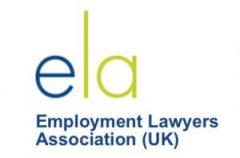Civil partnerships are legal unions available to heterosexual and same-sex couples in the UK. Whereas marriages are ended by divorce, civil partnerships are ended by dissolution. Civil partners can dissolve a civil partnership in the same way that a married couple can seek a divorce, and they have exactly the same legal rights in many areas of the law, including:
- Acquiring parental responsibility
- Provisions for financial claims
- Child maintenance
Like ‘no-fault’ divorce, you don’t need to give a reason to get a dissolution of a civil partnership, but you must have remained within the civil partnership for at least one year.
Dissolving a civil partnership
To dissolve a civil partnership, you must apply to a Court. You will need your original civil partnership certificate or a certified copy as this will be lodged at Court when the process is started. The dissolution process is begun by one civil partner (the “applicant”) lodging an application with the Court, along with the relevant divorce Court fees. You can also have a joint application where applicant 1 completes the application and it is sent to applicant 2 for approval. The application sets out the details of the civil partnership, the parties and confirmation that the civil partnership has irretrievably broken down.
If the respondent agrees to the dissolution, it will be called undefended or uncontested. If the respondent does not agree, then it will be called a defended or contested dissolution and the respondent will have a further 21 days to file an answer at Court. There are extremely limited circumstances that a dissolution can be defended/contested.
Civil Partnership Consent Order
Most separated couples who are dissolving their civil partnership try to negotiate an amicable agreement to deal with their finances rather than going to Court. However, it is advised that couples seek a Consent Order issued by a Court to record the financial settlement that has been negotiated. Remember, if you go through the process of ‘dissolution’, and nothing more, then whilst your civil partnership will have ended, you could be left exposed for the future. If you do not resolve financial matters during the dissolution process, by way of a legally binding Court order, then your claims against each other remain open for income, capital and pensions and either of you may apply to the Court in the future for a financial order.
It is important to formally tie up financial matters between you, and have an agreement enshrined in a Consent Order as if either of you has a change in circumstances, you may find that the other feels differently about how the finances have been divided at the time of the divorce. In the absence of an Order, unless and until a party enters another civil partnership, their financial claims against their ex-spouse arising from the civil partnership remain live, and they could bring a claim for financial relief and claim some of your wealth in future, even many years after the partnership was dissolved.
There are many issues to consider when separating finances on dissolution that can make matters more complicated including:
- One or both partners owns a business
- One partner is financially dependent on the other
- If there are dependent children to consider
- One partner has an issue which affects their ability to earn an income
- There is a disparity in assets e.g. one partner has more property in their name or a larger pension pot
- There are complex assets, potentially outside the UK, or which are subject to third party interests
- There is a concern over one partner dissipating or concealing assets/income
Civil Partnership Financial Settlements
If a couple dissolving their civil partnership cannot reach an agreement on the division of assets and financial provision, then either partner can apply to the Court to have the Court decide upon the terms of and impose a financial settlement. It is open to the parties to settle and agree to the terms of a Consent Order at any point. If there is an existing valid Pre-Civil Partnership Agreements or Post-Civil Partnership Agreements , they are persuasive evidence in financial proceedings.
Court orders can cover:
- the sale of properties and division of sale proceeds
- the transfer of properties / assets from one party to the other, or from joint names to sole name
- Pension Sharing / Pension Attachment / Pension Earmarking Orders
- lump sum payments
- partner maintenance
- child maintenance (in certain limited and prescribed circumstances given that jurisdiction for child maintenance ordinarily rests with the Child Maintenance Service)
- the division of contents (including pets) although it is much more preferable and normal for the parties to agree division given that it is normally disproportionate to have the Court adjudicate
The Court will consider various factors, giving greater weight than others, depending on the detailed circumstances of the case. The main factors are as follows:
- the income, earning capacity, property and other financial resources which each of the parties to the marriage has, is likely to have or could reasonably be expected to have in the foreseeable future
- the financial needs, obligations and responsibilities of each partner
- the standard of living enjoyed during the civil partnership
- each partner’s age and the length of the civil partnership, including any prior cohabitation
- any physical or mental disability of either party
- any contributions made by each partner to the welfare of the family
- the conduct of either partner to the extent that it is relevant to the financial settlement
- the value of any benefit that either partner will lose as a result of the dissolution
- the welfare of any children under the age of 18
Should there be concerns about the other partner disposing of assets before a judgment can be obtained, we are experienced in emergency arrangements to protect assets, such as issuing a freezing injunction.
It is important to note that it is likely that your Will is be invalid after dissolving a civil partnership, so each partner should review their Wills or make one if they do not have one.
Civil Partnership and Children Arrangements
If an agreement about child arrangements cannot be reached between the parents who are dissolving their civil partnership, mediation should be attempted (save in exceptional circumstances), which is a requirement before Court proceedings can be issued. If mediation is not successful, then there may be no choice but to seek the assistance of the Court by making a formal application.
The welfare of the child(ren) is the most paramount concern for a Court when considering what would be an appropriate arrangement between the parents. Settlement is encouraged at every stage of the proceedings, and it would be as a last resort that the Court would impose arrangements upon parents. This will only happen in circumstances when the parents really cannot agree between themselves.
Every application that is made to Court in relation to a child is referred to CAFCASS (Child And Family Court Advisory and Support Service) who will undertake required safeguarding checks with both the police and children’s services ahead of the first hearing. A telephone call with both parents will also be scheduled to ascertain if they have any safeguarding concerns about the other parent. CAFCASS will provide a Safeguarding Letter to both the Court and the parents before the first hearing and this sets out recommendations as to how the case should progress. The first hearing will take place approximately 4-6 weeks after the Court receives the application and both mediation and CAFCASS will be present during the hearing to try and help the parties reach an agreement if at all possible.
If no agreement can be reached and a final hearing is listed, the Court will require that both parties file their written evidence beforehand. A final decision is made taking into account the welfare checklist which can be found at section 1(3) of the Children Act 1989:
- the ascertainable wishes and feelings of the child concerned (considered in light of the child’s age and level of understanding)
- the child’s physical, emotional and educational needs
- the likely effect on the child if circumstances changed as a result of the Court’s decision
- the child’s age, sex, background and any characteristics of the child which the Court considers relevant
- any harm which the child has suffered or is at risk of suffering;
- how capable each of the child’s parents (and any other person in relation to whom the Court considers the question to be relevant) is of meeting the child’s needs
- the range of powers available to the Court in the proceedings in question
The Court is able to make determination in relation to a wide-range of issues in respect of children, for example, with whom the child is to live, how often and for how long they should spend time with each parent, where the child should attend school, whether the child should receive specific medical treatment etc. The most common application is for a “Child Arrangements Order”, which asks the Court to determine what the arrangements for the child should be in terms of spending time with each parent.
How we can help
Our civil partnership solicitors in Reading and Henley advise on all of the legal issues relating to civil partnerships, including:
- drafting pre-civil partnership agreements to help couples organise their finances during the partnership and to provide for the division of assets if the relationship breaks down.
- the legal process for dissolving a civil partnership
- the financial aspects of a civil partnership dissolution
- children arrangements
- advise you Wills and property issues
If you would like any advice on the above, then please contact THP Solicitors on 0118 975 6622. We offer a fixed fee appointment where one of our Family & Divorce solicitors would be happy to discuss the above, or any other legal matters.









